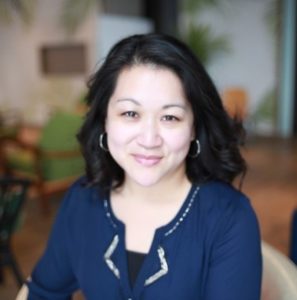Looking Up
Directed by Chao Deng and Yu Baimei
China, 2019
Mandarin Chinese with subtitles in English, Chinese, and other languages
147 minutes in duration
The film is no longer playing in theatres but should pop up in media-streaming service providers soon.
Trailer available on YouTube.
It’s rare that I am able to catch newly released Chinese feature films, but on a recent long-haul flight, Looking Up was playing in the entertainment console. I can only imagine what it would have been like to watch this film in a theatre with a room full of Chinese people tearing up together from the touching story and the themes that hit all too close to our cultural home.
The story is simple. A father is framed for designing a bridge that collapsed in a small town in China. His young son adores him but during his time in jail, the two become estranged. Several years later, upon the father’s release, he makes every effort to reconnect with his son, make up for lost time, and raise him to be the man that he knows he’s destined to be. The film plays out with a mix of the past and the present, from the perspective of the little boy who is now a grown man and on his first mission as a taikonaut (Chinese astronaut).
The themes are counter-cultural. The main character of the story is neither the father nor the son (though both give exceptional performances). The hero is the relationship between the two. Through this relationship, this film is able to challenge conventional values that are deeply rooted in Chinese culture.
Redefining success.
In China today, competition is fierce. For far too long now, it’s been everyone for themselves. Do whatever you have to do to get to the top.
As the father raises his son, he instills in him values of hard work, integrity, and honesty. Even in a dog-eat-dog world, a man still needs to be upstanding and true to his word.
Redefining education.
It is commonly known how intense the education system is in China and the methods are more based on rote learning and examination scores. The father, who is an engineer, insists that his son learn how to ask questions, think creatively, and risk failure. At one point, representing the conventional perspective, his ex-wife scolds him for brainwashing their son. She insists that learning is for the sake of doing well in school which will lead to a prosperous future. Learning is believed to be just a means to an end.
Shouldn’t learning be something one does all their life?
—Ma Haowen (father)
Redefining fatherhood.
In traditional Chinese culture, fathers are more known for working hard, putting food on the table, disciplining when necessary, and less known for emotional availability, thoughtful conversations, and intentional time spent with their children. In this film, this convention is completely challenged, and is probably the part that brings out the most tears in Chinese viewers.
Further to fatherhood, this film challenges traditional Chinese parenting in general.
Father: Everyone deserves dignity. You can criticize him but you don’t shame him in public.
Mother: It’s for his own good.
Father: That is the most horrendous excuse. It’s for your own good. If it’s so good why don’t you shame yourself for two hours.
There are moments where it all seems a little extreme and unrealistic. Other reviews have also commented that the film is too sentimental. While that might be true, given that the prevalent culture is so far on one end of the spectrum, perhaps a more exaggerated counterforce is necessary to provoke thinking differently about children, education, parenthood, and society at large.
The film is based on a true story but the dedication rightfully reads, “for fathers, for children.” It’s a story to challenge and encourage all who are raising children.
Life is like an arrow that targets our dreams. What’s the point in shooting it if you don’t know the target.
— Ma Haowen

Hannah Lau
Hannah Lau was born and raised in Canada. Growing up with immigrant parents from Hong Kong gave her a rich perspective on both Eastern and Western cultures. She has spent her adult life in Asia, beginning in China serving through work in the marketplace. With a colorful and hard-earned career in …View Full Bio
Are you enjoying a cup of good coffee or fragrant tea while reading the latest ChinaSource post? Consider donating the cost of that “cuppa” to support our content so we can continue to serve you with the latest on Christianity in China.